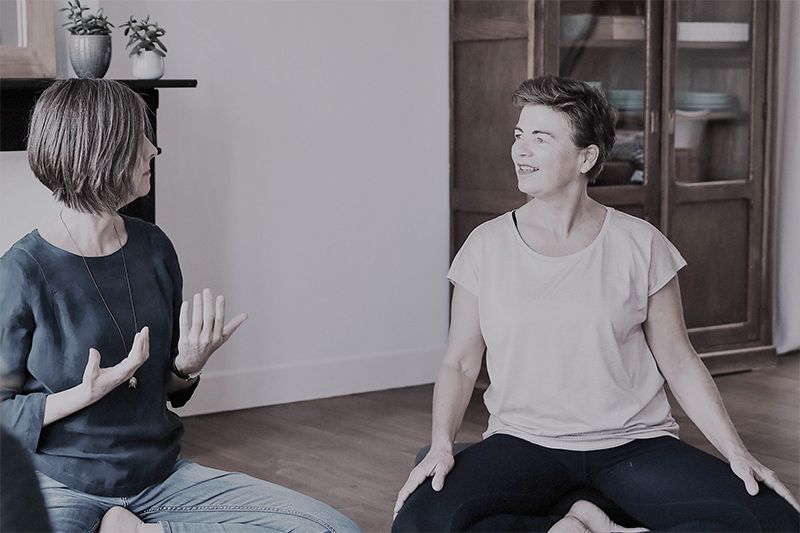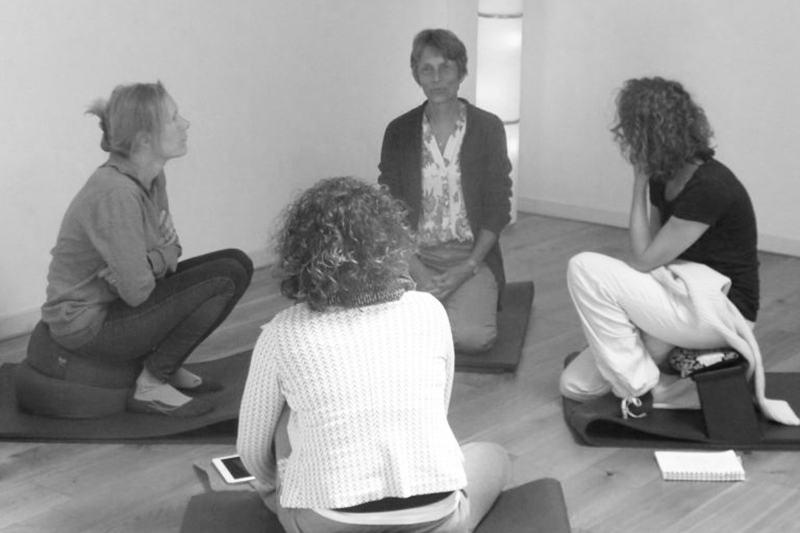Supervision
Supervision
Supervision is a powerful practice that supports the quality of your work. As a professional, supervision is the key possibility to reflect, to see new angles and find different approaches to the ways you work. Supervision can give you insight in what works well, and in what you might like to change.
For professionals working with other people, supervision is an essential part of the work. Whether things go just fine, or whether you meet challenges; supervision helps to stay sharp, fresh, and connected, even if you have been in your job for years.
You are welcome for individual supervision and discover your work with new eyes. Read more on supervision for professionals or contact me to book an appointment.
Are you an experienced teacher and interested in becoming a Mindfulness supervisor, you can read more about our international Mindfulness Supervision training.
What is supervision?
Supervision is a powerful instrument for ongoing development, professional as well as personal. It supports greater awareness and understanding and leads to increased confidence and ease in your work. Good supervision allows time and space to reflect on your practice, learn, and develop a wider perspective on your work and life. For many people, mindfulness supervision has also deepened their understanding of mindfulness.
In supervision, we explore themes that are important or in the foreground in of your work or life. This could be a question about a challenging situation with a participant or client, wondering if the way you handle certain themes could do with a fresh view, or questions about professional identity or role. Over the years, these are themes that colleagues have brought to supervision:
- It seems like I always teach certain sessions in the exact same way; I notice I am less sharp and fresh than when I started.
- In inquiry, I notice I always ask the same set of questions, and I wonder if I could have more meaningful inquiries.
- In certain sessions I tend to get stuck.
- I notice I avoid some themes in the groups I work with.
- If participants or clients have difficulties, or express resistance, I am not sure how to handle this.
Reflection provides opportunities for exploration and further learning. When you are a starting teacher, or have been around for a long time. In this way supervision supports personal and professional development. And as you benefit from supervision, the people you work with benefit, too. This is hopefully the outcome of all supervision!

An important aspect of supervision is that we do not explore deeper underlying themes and patterns. This is where supervision differs from therapy. Similar to mindfuness inquiry, we do not explore the details of a particular situation, but rather look at the process and how we can (learn to) deal with it in the most supportive way. And just like mindfulness inquiry, the supervisee is leading in the session, meaning that what you bring to supervision is what we will explore and work with. It is an essential feature of every session, and this is what makes supervision ’empowering’. I am not so much interested in you copying the right approach. I rather support you in finding your own optimal way of working.
Supervision for mindfulness professionals
As a part of their teacher training, most mindfulness teachers taught a pilot course under supervision, having four or five sessions to explore themes and questions about the teaching process and reflect on this with a supervisor.
In the wider field of mindfulness, there is a growing interest for supervision as a part of continuing education. As a regular element of your teaching – something which most of us do alone – enabling you keep a fresh view on your work. And to grow as a professional. This can be done in individual sessions, but also in a group. As in a mindfulness program, you can benefit hugely from the reflections and insights of fellow group members. Individual supervision usually last for one hour. Group supervision, depending on the group size, between 60 and 180 minutes.
Supervision rests in the same family as mentoring and coaching. Where supervision and mentoring are work-focused, coaching is often about life themes. While supervision provides the deeper dive of the three modes, the Mindfulness supervision training will allow you to work in all three fields afterwards. The mindful holding offers the extra layer to look closer and make a connection with challenges and questions at a deeper level.




